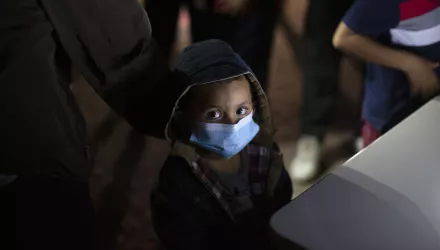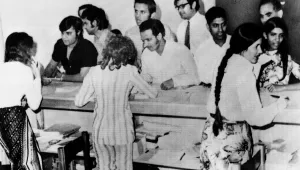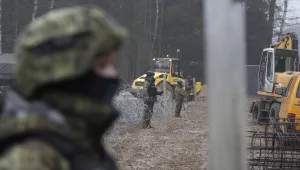Objectives of This Paper
This collective policy paper summarizes the main themes of Morocco's recent experience around migration policy. It draws upon many conversations with major stakeholders, group work, and site visits. We believe that thus far potential lessons from Morocco's migration experience have generally been neglected in the current discourse around migration. This paper will draw out a number of ways in which this case is interesting and relevant for Europe. Ultimately we see potential lessons clustered around two main themes: the necessity of agile and fluid frameworks in formulating policy for the status of migrants, and the prerequisite (in formulating this policy) to grant space and voice to civil society. We hope that the ideas in this paper will challenge and inform policymakers as they seek to address this issue, which will continue to be present for years to come.
About the Harvard Field Study
Since 2006, Professor Claude Bruderlein and his team have run an experiential, field-based course on critical thinking and strategic planning in times of crisis for graduate students at the Harvard Kennedy School of Government, the T.H. Chan School of Public Health, and other Harvard graduate schools. A group of 16 Harvard graduate students joined the field study course in January 2016. The 2016 course focuses on the policy response to challenges and dilemmas surrounding the migration crisis in the Maghreb and Mediterranean. It has centered on a three-week field-based mission, of which two weeks were spent in Morocco, and one in Italy.
The course has three major aims: to develop a nuanced understanding of the case in question, to explore and apply relevant critical thinking tools and strategic planning processes in a complex environment, and to introduce students to the methods of experiential learning. The first of these aims is scientific; students should understand Morocco's experience of migration, reflecting on its relevance for Europe as the continent considers its own response. The second objective entails the use of applicable critical and strategic assessment tools emphasizing collective reflections and exchanges. The last objective is centered on skill building, using the case of Morocco to further professional dialogue on political and ethical dilemmas, and to learn to approach situations through interdisciplinary scientific lenses, all the while developing practical and professional skills in mission planning and implementation.
DOWNLOAD THE FULL PAPER HERE:



